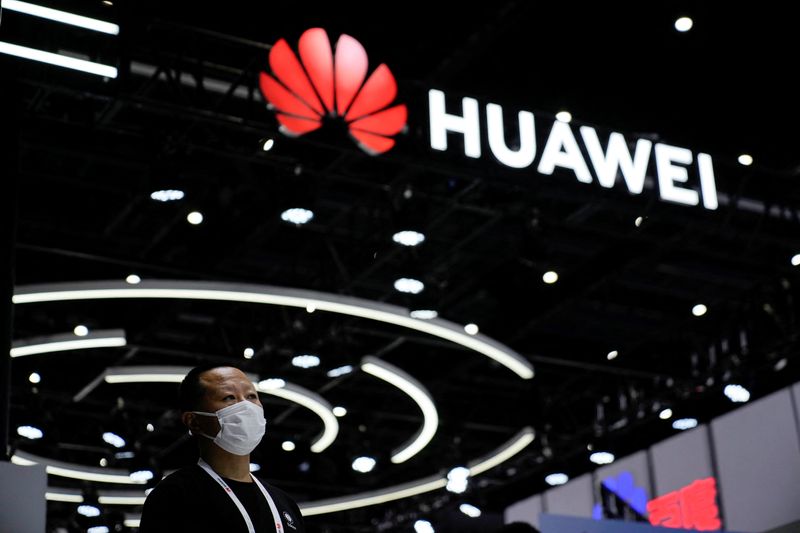By Diane Bartz and Alexandra Alper
(Reuters) -The Biden administration has banned approvals of new telecommunications equipment from China's Huawei Technologies and ZTE (HK:0763) because they pose "an unacceptable risk" to U.S. national security.
The U.S. Federal Communications Commission said on Friday it had adopted the final rules, which also effectively bar the sale or import of new equipment made by Chinese surveillance equipment maker Dahua Technology Co, video surveillance firm Hangzhou Hikvision Digital Technology Co Ltd and telecoms firm Hytera Communications Corp Ltd.
The move represents Washington's latest crackdown on the Chinese tech giants amid fears that Beijing could use them to spy on Americans.
"These new rules are an important part of our ongoing actions to protect the American people from national security threats involving telecommunications," FCC Chairwoman Jessica Rosenworcel said in a statement.
Huawei declined to comment. ZTE Hytera and the Chinese embassy in Washington did not respond to requests for comment.
Hikvision said in a statement that its products don't threaten U.S. security.
"This decision by the FCC will do nothing to protect U.S. national security, but will do a great deal to make it more harmful and more expensive for U.S. small businesses, local authorities, school districts, and individual consumers to protect themselves, their homes, businesses and property," Hikvision said, adding that it will continue to serve U.S. customers "in full compliance" with U.S. regulations.
Dahua said in a statement that the order went "far beyond" the FCC's statutory authority and would do "little or nothing" to protect U.S. national security. It also stressed that the FCC move allows the company to sell previously authorized products and obtain new authorizations, as long as they are not marketed for public safety, government facilities, critical infrastructure, or national security.
"Given that Dahua’s products are not currently marketed for those purposes..., we are reasonably confident that this Order will allow us to continue to serve most of our U.S. customers for years to come," Dahua said.
Rosenworcel circulated the proposed measure to the other three commissioners for final approval last month.
The FCC said in June 2021 it was considering banning all equipment authorizations for all companies on the covered list.
That came after a March 2021 designation of five Chinese companies on the so-called "covered list" as posing a threat to national security under a 2019 law aimed at protecting U.S. communications networks: Huawei, ZTE, Hytera Communications Corp Hikvision and Dahua.
All four commissioners at the agency, including two Republicans and two Democrats, supported Friday's move. The agency said it has authority to revoke prior authorizations, but declined to do so, meaning that the sale of currently authorized products in the United States can continue.
